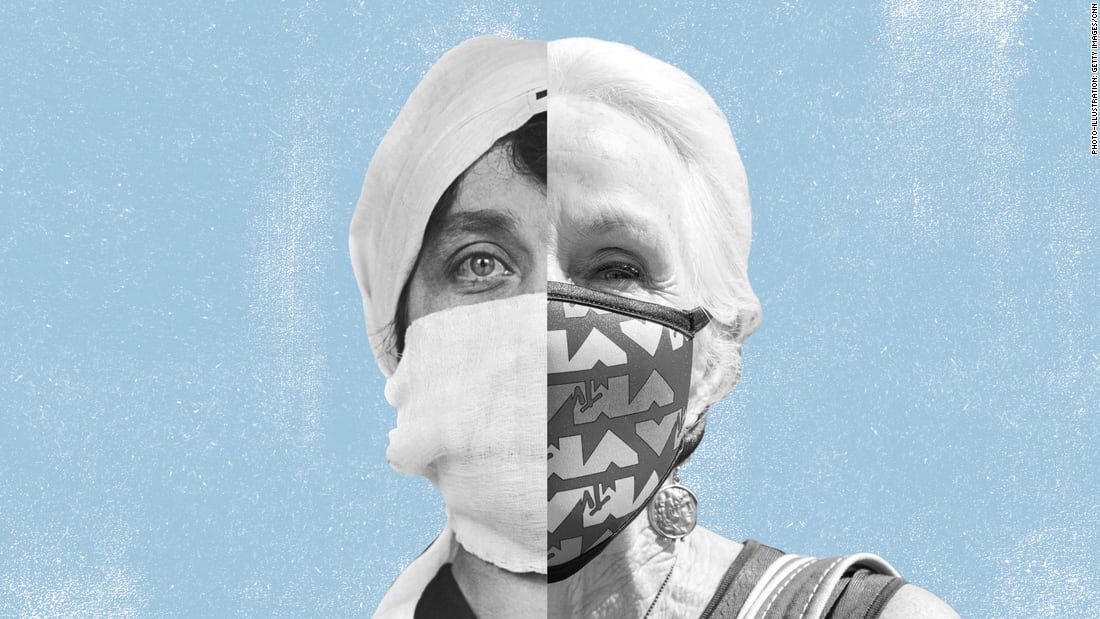Florida's governor clears restaurants and bars to fully open
From CNN's Konstantin Toropin
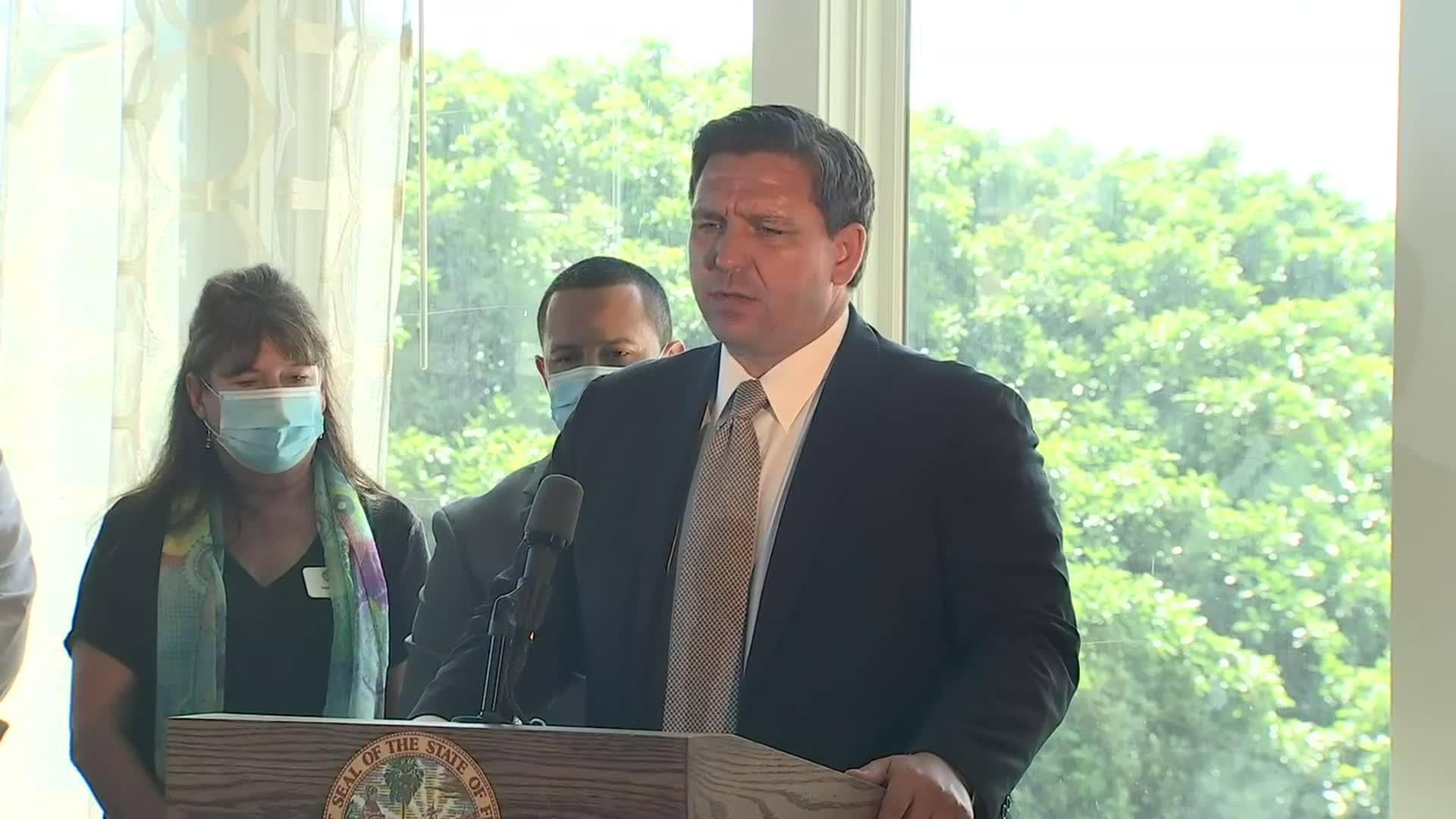 Florida Gov. Ron DeSantis speaks during a press conference in St. Petersburg, Florida, on September 25. WFTS
Florida Gov. Ron DeSantis speaks during a press conference in St. Petersburg, Florida, on September 25. WFTSFlorida Gov. Ron DeSantis announced that he has signed an order moving the state into phase three of reopening at a news conference today.
DeSantis emphasized the impact the move will have on restaurants and bars, which can now operate at 100% capacity.
"There will not be limitations, from the state of Florida," DeSantis said.
However, the order treats restaurants and bars differently in terms of what local municipalities can do to restrict operations.
"If a local restricts between 50 and 100, they've got to provide the justification and they've got to identify what the costs are involved with doing that are," the governor added.
Conversely, bars, which were operating at 50% capacity, must be authorized to scale up to 100% by local governments.
"If you want to go beyond the 50, you can authorize it and do it," DeSantis said.
"We're not telling you [that] you have to, but we're not going to stand in the way of that," he added.
DeSantis, in "an act of executive grace," also suspended "all outstanding fines and penalties that have been applied against individuals" associated with pandemic-related mandates, such as mask requirements.
"I think we need to get away from trying to penalize people for social distancing," DeSantis said.
"All these fines we're going to hold in abeyance and hope that we can move forward in a way that's more collaborative," he added.
More than 40 staff members under quarantine at an NYC middle school
From CNN’s Anna Sturla
More than 40 staff members at a New York City middle school have been asked to quarantine after one person tested positive for coronavirus, according to the school.
One person who had attended an indoor staff meeting at Staten Island's Edwin Markham Intermediate School tested positive for coronavirus. Because the meeting was longer than 30 minutes, all 43 people who attended were required to quarantine, according to posts on the school's website.
The school closed in-person teaching on Wednesday, and reopened on Thursday, according to the school.
The school's principal and the New York City Department of Education did not respond to CNN's requests for comment.
Rio de Janeiro’s 2021 carnival parade postponed due to Covid-19
From CNN’s Flora Charner and Alessandra Castelli
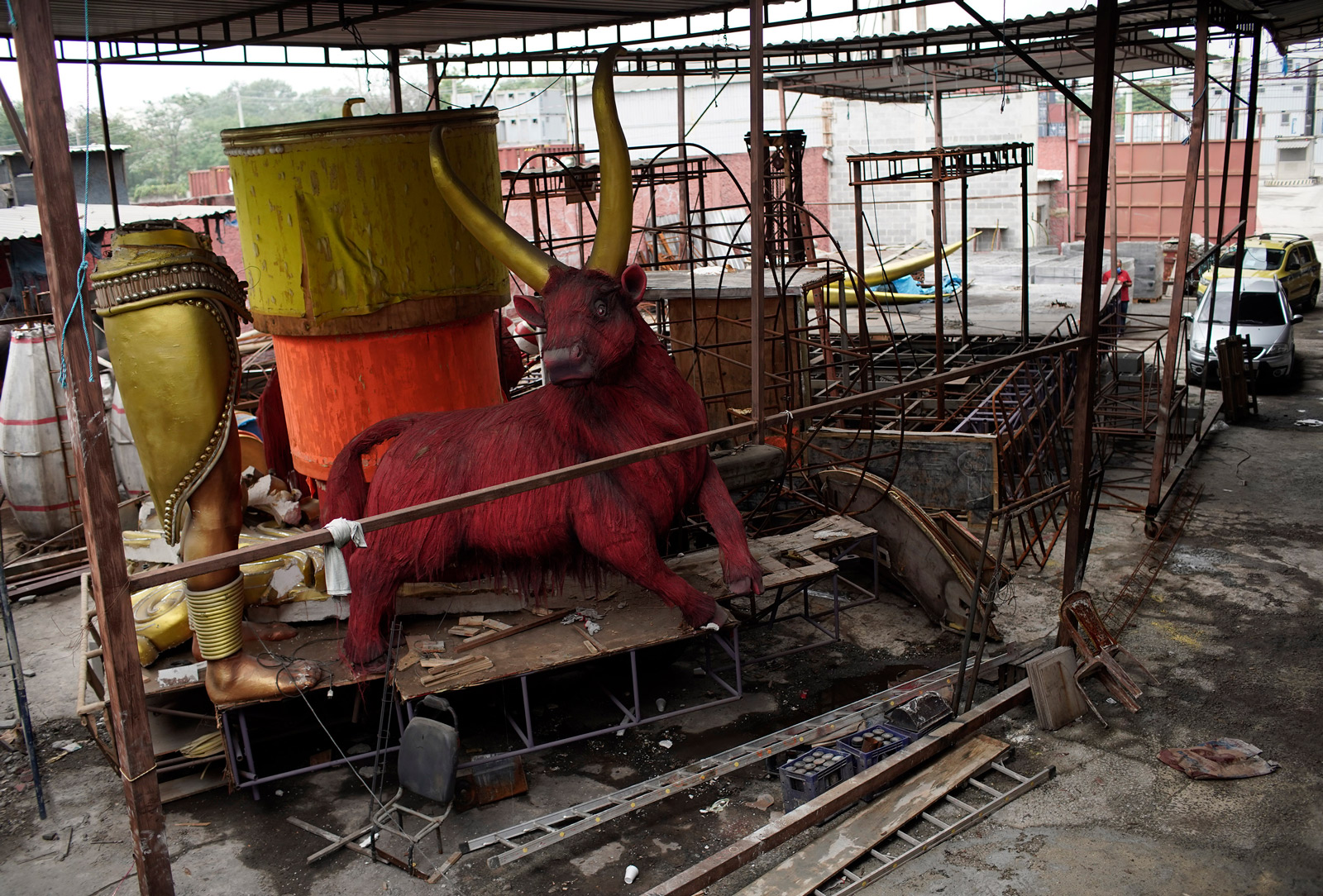 Carnival parade floats sit unfinished at the Unidos de Padre Miguel samba school workshop in Rio de Janeiro, Brazil, on September 21. Silvia Izquierdo/AP
Carnival parade floats sit unfinished at the Unidos de Padre Miguel samba school workshop in Rio de Janeiro, Brazil, on September 21. Silvia Izquierdo/APRio de Janeiro’s world-famous carnival parade has been postponed for 2021 due to the coronavirus pandemic.
The head of the League of Samba Schools, the group that organizes the two-day parade, announced the decision during a Rio de Janeiro news conference Thursday.
Castanheira said no new date had been set for the parade, which was scheduled to take place in late February.
The pre-lent holiday usually attracts millions of Brazilian and foreign tourists to Rio de Janeiro. In 2020, more than 2 million people descended upon the city, bringing more than 700 million dollars in revenue, according to state tourism agency Riotur.
Riotur acting president Fabricio Villa Flor told CNN Brasil Friday that he’s going to set up a meeting with the samba parade organizers to determine a new date.
“We are going to discuss the possibility of a new design (for the parade), but it’s difficult given the large gathering of people that occurs during carnival,” Villa Flor said.
Brazil has the world’s third-worst coronavirus outbreak after the US and India, with more than 4.6 million cases, according to the latest Johns Hopkins University data.
New York City mayor makes outdoor dining permanent and year-round
From CNN's Sheena Jones
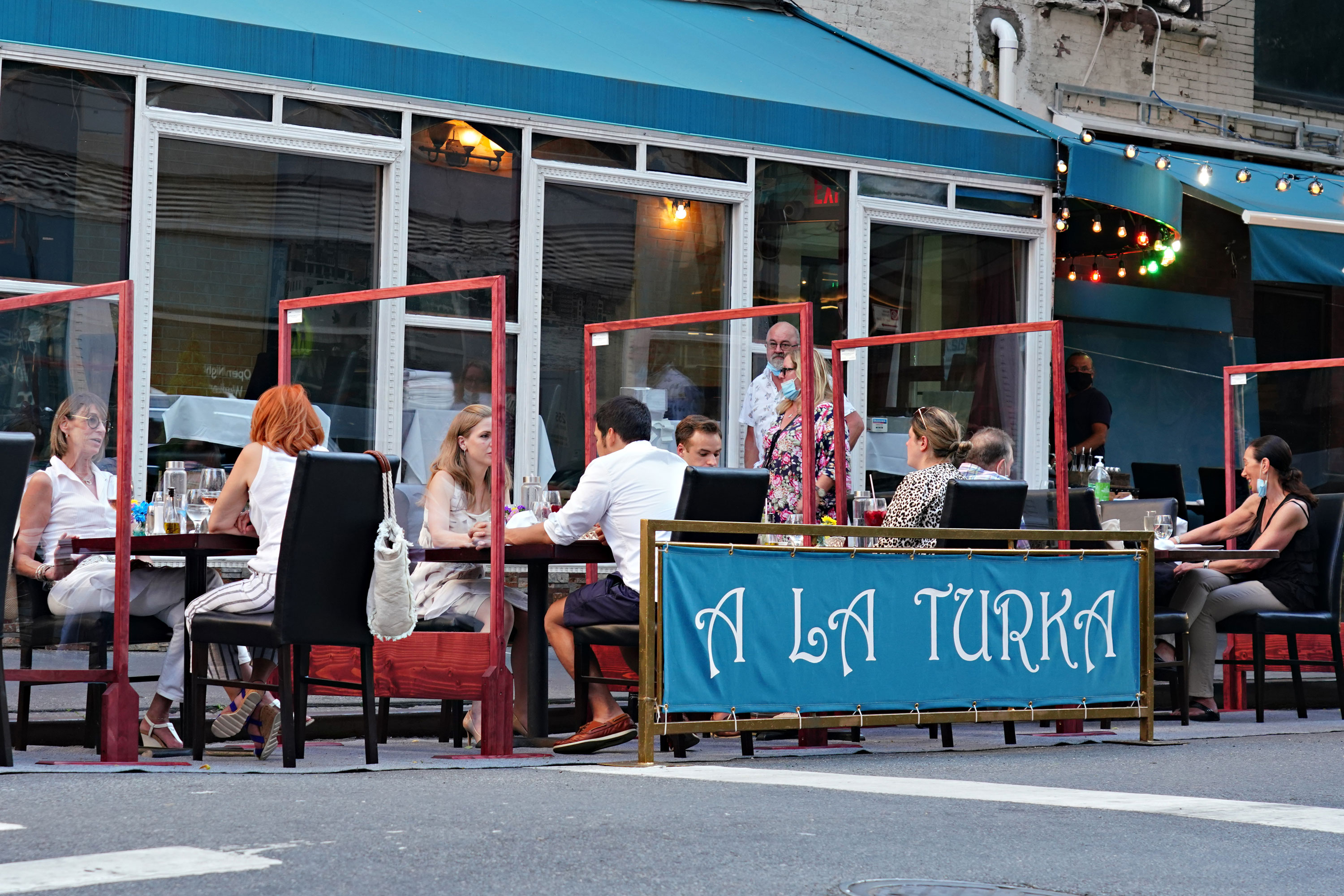 People in New York dine outside on June 24. Cindy Ord/Getty Images
People in New York dine outside on June 24. Cindy Ord/Getty ImagesOutdoor dining will be permanent and year-round in New York City, Mayor Bill de Blasio announced Friday on WNYC Radio.
Restaurants will be able to use sidewalks and streets for seating for years to come, the mayor said.
This announcement comes as indoor dining, at limited capacity, is set to begin next week.
The mayor said restaurants will be able to add heating lamps to keep the area warm, but if restaurants completely enclose the outdoor space they will have to adhere to indoor dining guidelines.
De Blasio appeared on the radio show to take questions from the community.
Iran surpasses 25,000 coronavirus deaths, health ministry says
From Ramin Mostaghim in Tehran
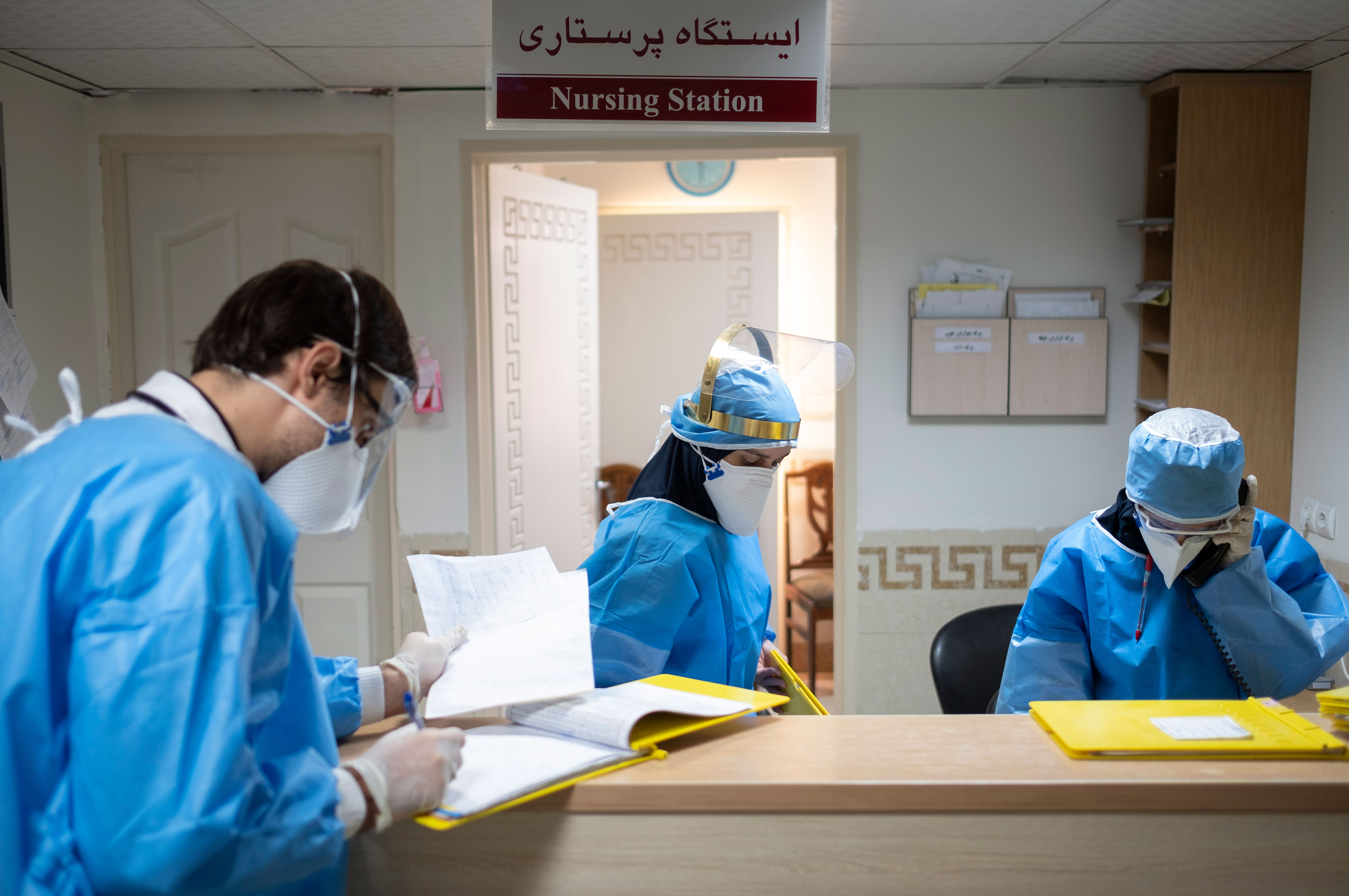 Medical personnel in Tehran, Iran, work in the Covid-19 section of the Ali Asghar Children's Hospital on September 6. Morteza Nikoubazl/NurPhoto/Getty Images
Medical personnel in Tehran, Iran, work in the Covid-19 section of the Ali Asghar Children's Hospital on September 6. Morteza Nikoubazl/NurPhoto/Getty ImagesIran’s Health Ministry spokeswoman Sima Sadat Lari said on Friday that an additional 207 Iranians have died from coronavirus over the past 24 hours, bringing the death toll across the country since the pandemic began to 25,222 deaths.
The spokeswoman also announced that at least 3,563 new Covid-19 cases were registered in the past 24 hours, bringing total infection to 439,882.
CNN cannot verify the figures from other independent sources.
Virginia governor and wife test positive for Covid-19
From CNN’s Carma Hassan
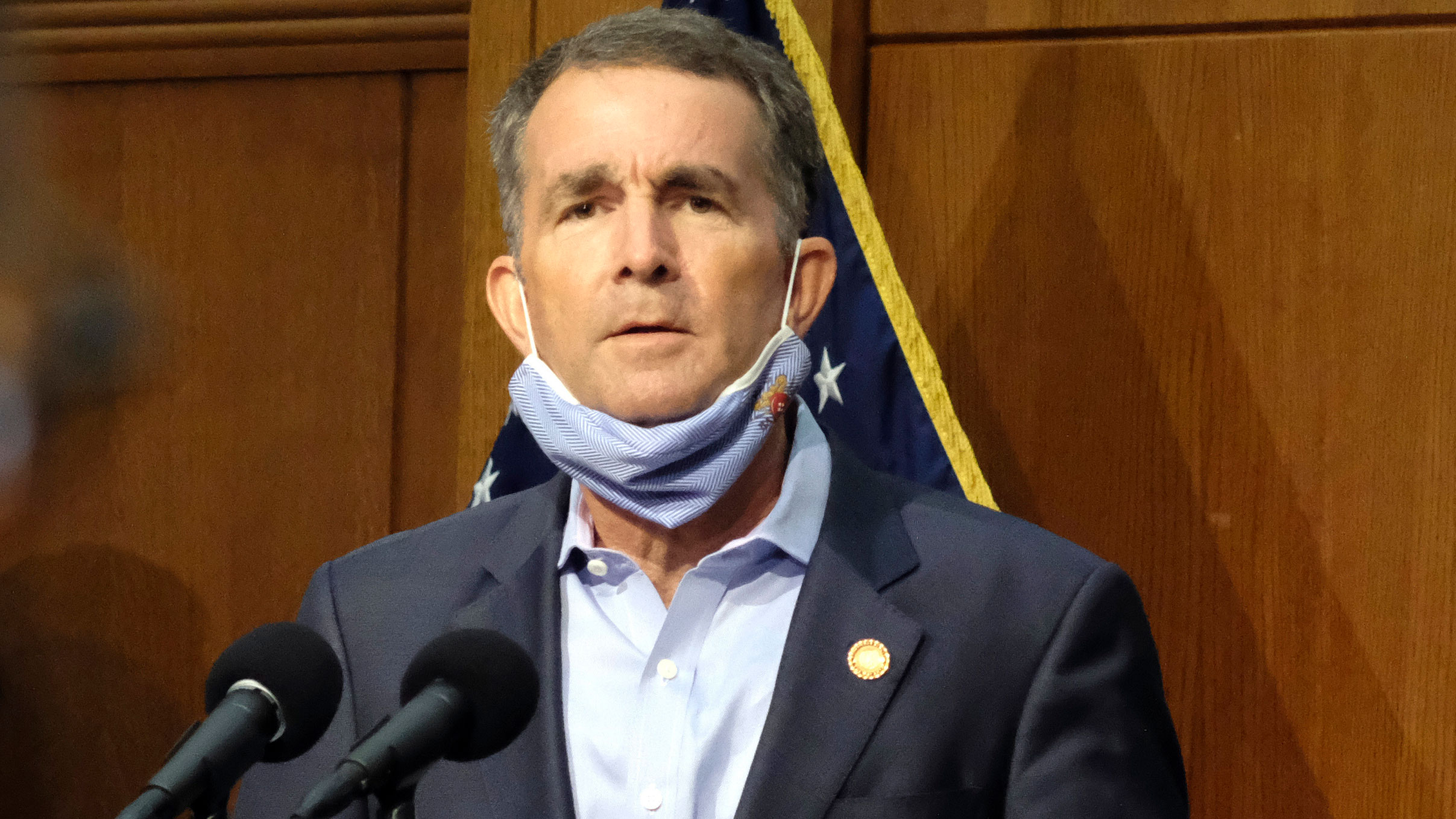 Gov. Ralph Northam holds a press briefing in Richmond, Virginia, on September 1. Bob Brown/The Richmond Times-Dispatch/AP
Gov. Ralph Northam holds a press briefing in Richmond, Virginia, on September 1. Bob Brown/The Richmond Times-Dispatch/APVirginia Gov. Ralph Northam and his wife, first lady Pamela Northam, have tested positive for Covid-19, according to a statement from the governor’s office.
Northam is not experiencing any symptoms, but his wife has mild symptoms, the statement said.
“Both remain in good spirits,” the statement says.
The governor and first lady will isolate for the next 10 days and evaluate their symptoms. They were notified on Wednesday that a member of their residence staff tested positive for coronavirus.
“As I’ve been reminding Virginians throughout this crisis, COVID-19 is very real and very contagious,” Gov. Northam said in the statement. “The safety and health of our staff and close contacts is of utmost importance to Pam and me, and we are working closely with the Department of Health to ensure that everyone is well taken care of. We are grateful for your thoughts and support, but the best thing you can do for us—and most importantly, for your fellow Virginians—is to take this seriously.”
University students in Scotland banned from bars and restaurants amid coronavirus spike
From Amy Cassidy in Glasgow
Scottish First Minister Nicola Sturgeon says students are not to blame for the spread of Covid-19 in Scotland despite being banned from bars and restaurants and thousands being forced to self-isolate at campuses.
Students in shared accommodation must not mix with other households. In addition, all students — not just those living on campus — must stay out of bars and restaurants and cafes this weekend.
It comes as several universities across the country report major outbreaks of infections.
Sturgeon also said she supports universities taking disciplinary action against students who breach these guidelines “as a last resort.”
Large indoor gatherings are now an offense in Scotland, and Chief Constable Iain Thomas Livingstone made it clear at the briefing that parties will not be tolerated: “Where officers encounter blatant, willful, persistent breaches, we will act decisively. We will enforce the law.”
Scotland reported a record number of daily cases on Friday, at 558.
Sturgeon warned that “we will see campus cases continue to rise in the days to come, but if we take steps now to limit the interaction we can help stem that flow” and urged students to “please do what is being asked of you.”
California just became the first US state to surpass 800,000 confirmed coronavirus infections
From CNN's Stella Chan
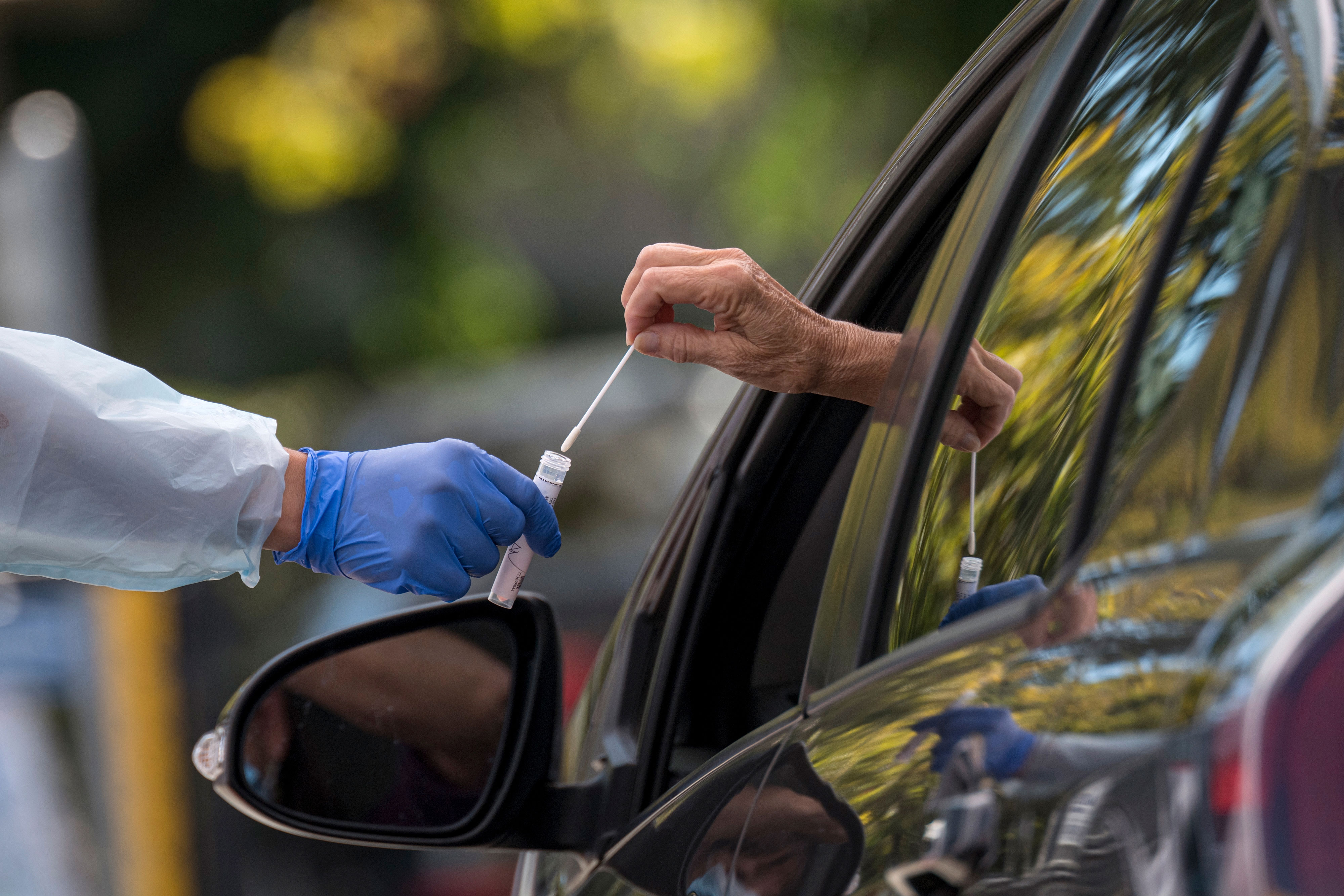 A health worker in Martinez, California, takes a swab from someone at a Covid-19 testing site on August 4. David Paul Morris/Bloomberg/Getty Images
A health worker in Martinez, California, takes a swab from someone at a Covid-19 testing site on August 4. David Paul Morris/Bloomberg/Getty ImagesCalifornia is now the first US state to surpass 800,000 cases of Covid-19, according top data from Johns Hopkins University. At least 15,405 people have died.
The most populous state in the nation has now recorded more than 800,273 infections. Texas, the second-most populous state, has identified 747,366 cases and at least 15,510 deaths. The third, Florida, has identified 693,040 cases and at least 13,795 virus-related deaths.
California became the first state to surpass 700,000 cases on August 29.
Here's a look at how California's figures compare to other states:
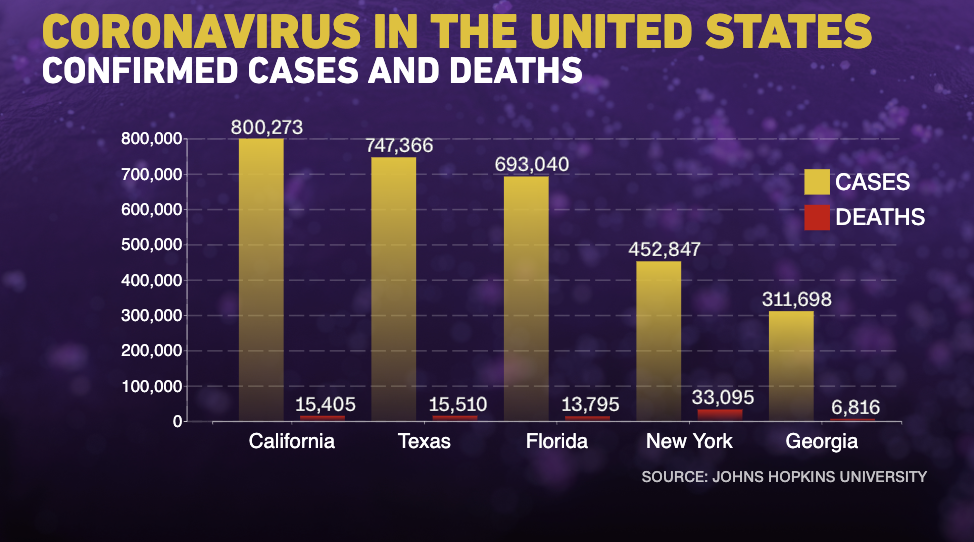
What the 1918 flu pandemic can teach us about coronavirus
From CNN's Kristen Rogers
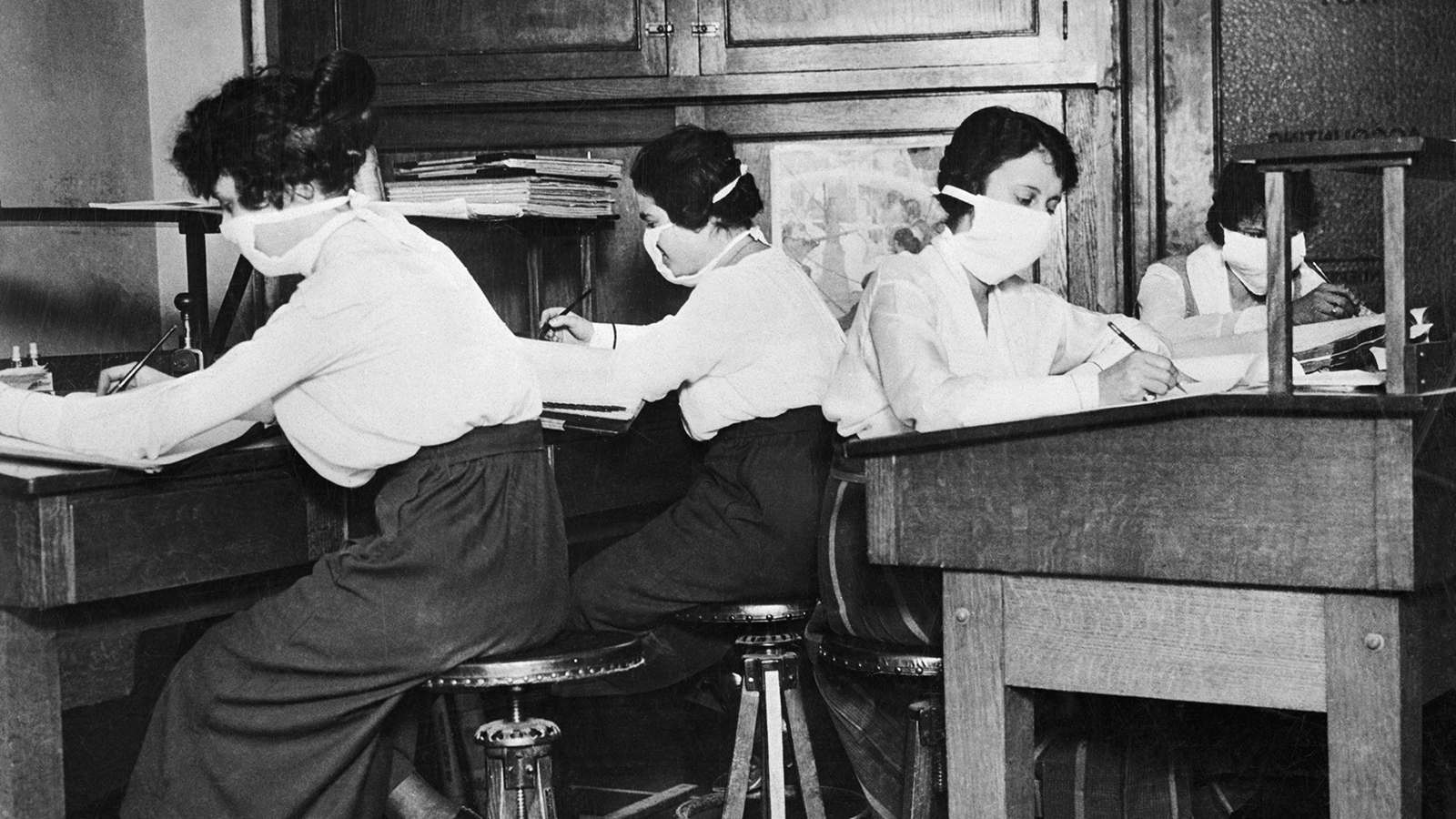 Women wear cloth surgical-style masks to protect against influenza in October 1918. Bettmann Archive/Getty Images
Women wear cloth surgical-style masks to protect against influenza in October 1918. Bettmann Archive/Getty ImagesAt this point in the coronavirus pandemic, with more than 32 million infected and more than 980,000 dead worldwide, describing this time as "unprecedented" may sound like nails on a chalkboard.
This pandemic, however, actually isn't without precedent: The last time we dealt with a pandemic so mysterious, uncontained and far-reaching was in 1918, when influenza devastated populations around the globe.
The 1918 flu killed 50 million to 100 million people through 1919. There are eerie parallels between the 1918 flu and the 2020 coronavirus pandemic: a disease with a startling range of symptoms for which there is little treatment, human behavior as a hindrance to public health and cluster outbreaks that have become widespread, to name a few.
For 102 years, influenza scholars and infectious disease experts have attempted to educate the masses in hopes of preventing future pandemics. And yet, here we are.
To be clear, the coronavirus at fault for the current pandemic isn't a flu virus. And yet the 1918 and 2020 pandemics share similarities in terms of their basis on a novel, formidable virus that took the world and every aspect of society by storm. To learn the lessons of the 1918 flu, the missteps we've taken since and our post-pandemic future, CNN spoke with three experts on the subject.
Read more:

 5 years ago
1092
5 years ago
1092 